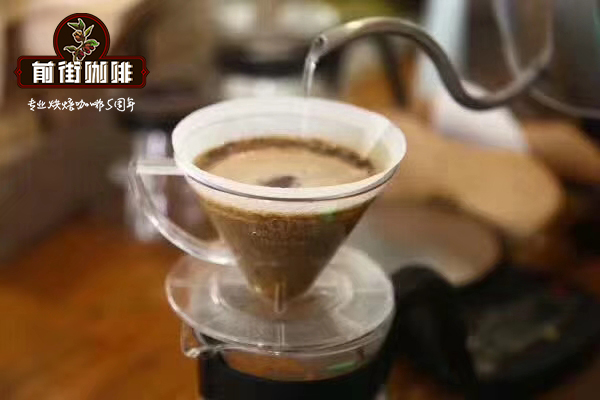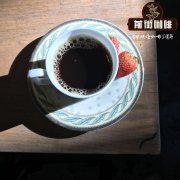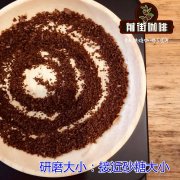What brand of Kenyan AAA coffee tastes good? Kenyan Coffee Raw Bean processing process

Professional coffee knowledge exchange More coffee bean information Please pay attention to coffee workshop (Weixin Official Accounts cafe_style)
Kenya coffee beans are graded according to particle size, such as AA is a large particle, pb is a very small round bean, but eggs, taste is not just good or bad by size,(Of course, if the particle size difference of a packet of beans is obviously not good, so the recommendation is, if you drink it yourself, you can buy manor beans. The domestic price is hundreds to hundreds per pound. Manor beans are different from AA commercial beans. The taste must be much better. The key point is that you will encounter different good tastes. The brand I want to talk about is named after the name of the bean baker. Taobao has, fisher's house, front street coffee, seesaw, kafe of memory.(This shop seems to be too lazy to put things on shelves, except for those you know, you can only ask the store, the taste is great), Mingqian coffee, etc. In fact, even if it is Kenya AA at 70 yuan per pound, the taste will not be bad in these shops. Having said that, in fact, if you are not very clear about fine coffee, not very clear about hand-brewed coffee, then it is recommended that you understand it first before buying it. After all, if you are used to the charred taste of carbonization, you will not be able to immediately like the sweet and sour fruit coffee.
- 01 Close-
planting
Awesome growing environment.
As the saying goes,"good cows produce good milk, good soil produces good coffee." Kenya coffee beans are grown in Kenya at altitudes of 1400 to 2000 meters above sea level and grow in nutrient-rich volcanic soils.
The climate here is comfortable, never hotter than European summers, precipitation is uniform throughout the year, and the red volcanic soil is deep and steep, ensuring good drainage. These excellent conditions have made coffee in most parts of Kenya unique in the world.
About 60 per cent of Kenya's coffee is produced by smallholder farmers, who cling to good sloping land that cannot be cultivated on a large scale. And because we are "family," we are well cared for.
- 02 Close-
picking
I'm crazy about red.
There are two harvest seasons in the year. The main season begins with rainfall in October and continues until the end of the year, with smaller seasons from June and July to early August.
At this time, we are purely hand-selected, only the color of red and full mature partners will be picked. For the sake of C position debut, we want to be red crazy.
Insane os: pick me! Pick me!
- 03 Close-
Preselection & Shelling
Take off the Chinese clothes and leave only the core competitiveness
Small farmers don't have the equipment, so after picking we are sent to coffee cooperatives (factories) for centralized processing.
Before the peel and pulp are removed, there is a pre-selection to eliminate small partners with unqualified weight and maturity.
After fading the bright red clothes, we left our core competitiveness-seeds, which is the initial coffee beans.
Those discarded fruit peels and pulp will eventually return to the soil and become nutrients to nourish the next generation of friends.
- 04 Close-
double fermentation
Good things come in pairs. We're different.
In Kenya, the best quality coffee beans are fermented by washing, but this is different from the normal washing method. After peeling, the pectin layer is removed in one step.
And we're going to do two fermentations, the first lasting 12-24 hours, to remove 80 -90% of the pectin layer.
After washing, a second fermentation is carried out for 24-48 hours to decompose the remaining pectin layer. Double fermentation can avoid excessive fermentation to produce odor, while improving flavor and taste.
- 05 Close-
Final washing & classification
Even brothers have to part ways.
Finally, a good bath, clean from needless to say, but also make coffee beans more uniform color, flavor more balanced.
By flowing water can also be the weight of the small partners are not uniform to distinguish, who is fat at a glance know! To help us grade better.
In Kenya, coffee is graded into seven separate grades based on the size, weight and hardness of the beans.
E-class beans and PB round beans are special, not according to the simple size hardness classification. AA is at the top of the quality spectrum and has more aromas and flavors, which are essential for a good coffee.
- 06 Close-
drying
Strength, reject excess water
Before drying, we should manually screen again. The poor friends will be eliminated. Our coffee also depends on the face! Drying reduces the moisture content of beans from 55% to 12%, making it easier to store and bake.
- 07 Close-
Tasting & Auction
Excellent graduates are coming out
Coffee tasters rate us according to green bean quality, roasted ripe bean quality and tasting experience.
All coffee beans are purchased by the Coffee Board of Kenya (CBK), and weekly coffee auctions are held to be purchased by licensed distributors through competitive bidding.
After so many passes, my friends and I will choose to stay in the local area or go far away. The world is so big, I also want to see it!
END
Important Notice :
前街咖啡 FrontStreet Coffee has moved to new addredd:
FrontStreet Coffee Address: 315,Donghua East Road,GuangZhou
Tel:020 38364473
- Prev

Cultivation of Bungoma Coffee in Bengoma, Kenya Coffee producing area. How about Kenyan coffee beans?
Professional coffee knowledge exchange more coffee bean information please follow Coffee Workshop (Wechat official account cafe_style) one. Geographical introduction: several famous producing areas of Kenyan coffee beans are located around Mount Kenya in central Kenya, such as Nyeri Neri, Kirinyaga Kirinaga, Muranga Mulanka, Embu Enbu, Laikipia Lekipea. And Bengo
- Next

Is Kenya Nigoo Coffee good? Kenya Ngugu Coffee processing Plant _ what kind of coffee is good in Kenya?
For more information on coffee beans, please follow Coffee Workshop (Wechat official account cafe_style) Ngugu- Kenya this coffee is produced by many small farmers, all of whom are members of the Kibirigwi Farmers' Cooperative Association (FCS) located in Kirinyaga County, Kenya. The cooperative has nine wet mills (factories because they know it in Kenya), each
Related
- Detailed explanation of Jadeite planting Land in Panamanian Jadeite Manor introduction to the grading system of Jadeite competitive bidding, Red bid, Green bid and Rose Summer
- Story of Coffee planting in Brenka region of Costa Rica Stonehenge Manor anaerobic heavy honey treatment of flavor mouth
- What's on the barrel of Blue Mountain Coffee beans?
- Can American coffee also pull flowers? How to use hot American style to pull out a good-looking pattern?
- Can you make a cold extract with coffee beans? What is the right proportion for cold-extracted coffee formula?
- Indonesian PWN Gold Mandrine Coffee Origin Features Flavor How to Chong? Mandolin coffee is American.
- A brief introduction to the flavor characteristics of Brazilian yellow bourbon coffee beans
- What is the effect of different water quality on the flavor of cold-extracted coffee? What kind of water is best for brewing coffee?
- Why do you think of Rose Summer whenever you mention Panamanian coffee?
- Introduction to the characteristics of authentic blue mountain coffee bean producing areas? What is the CIB Coffee Authority in Jamaica?

